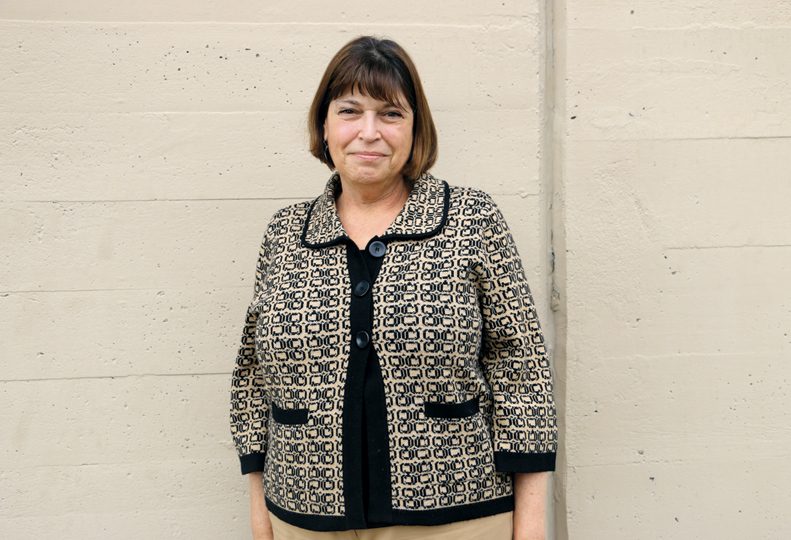
Home » Q&A with Gonzaga University's Rosemarie Hunter
Q&A with Gonzaga University's Rosemarie Hunter
~

November 7, 2019
Gonzaga University established its School of Leadership Studies almost a year and a half ago when it renamed the School of Professional Studies and brought its existing undergraduate, graduate, and doctoral degree and certificate programs under one roof.
In June, Rosemarie Hunter joined Gonzaga as dean of the School of Leadership Studies. Hunter came to Gonzaga from the University of Utah, where she was an associate professor at that institution’s College of Social Work.
The Journal of Business sat down with Hunter to discuss the School of Leadership Studies, her role, and the future of the new school.
Journal: What are the connections between your previous experiences in social work and your new role as dean of the School of Leadership Studies?
Hunter: My discipline is social work; I have both my master’s and my Ph.D. in social work, and that has led me to do a lot of work in social justice areas, working with underrepresented populations. I’ve done a lot of work with communities of both immigrant and refugee backgrounds.
A lot of the work that I’ve done in the communities is thinking about how somebody moves an idea to implement it into a project. Sometimes, that’s an individual who wants to develop a small business, and sometimes, that’s a group of people who want to change what’s happening in their neighborhoods.
When this opportunity to do leadership studies at Gonzaga came up, it was such a good fit for everything that I’d been working in throughout my life.
Journal: What qualities do you look for in prospective students?
Hunter: We believe that education causes an internal transformation through your journey of learning. If you don’t want to be transformed, this isn’t the place for you. That’s not to say that, as you come in, you’re not good to begin with. It’s not changing something that’s wrong. It’s looking at all that I am and helping it to keep emerging in ways that I want it, that does this change and this good for others and myself as part of that and change for humanity. That’s a lifelong process.
Journal: What do graduates of the School of Leadership Studies go on to do?
Hunter: Because we believe everybody can develop leadership, people do an amazing range of different kinds of things as they leave here. We definitely have people who go into corporate positions (in) the business world, nonprofits, but then we also have people who are legislators today.
That’s what’s really nice about leadership studies; it doesn’t track you into being one thing.
Journal: Is leadership studies trendy right now?
Hunter: As a discipline in schools and higher education, it’s still young and has just come into its own. In that sense, it’s at the point where it now has the scholarship and the research behind it. It has the models behind it. It is an interdisciplinary space that’s come together, and you can see it now across the nation and internationally in schools and departments of leadership studies. I think it’s always been there, but it’s been embedded in other things.
Journal: What’s your vision for the School of Leadership Studies?
Hunter: I want to see us more integrated with our communities. I see great opportunity for us to expand into communities that are traditionally underrepresented in higher education and in the business community. When I think about how people can have an impact in their communities, we really need to make sure that we’re offering this education more broadly. What does it look like for us to emerge into youth spaces? What does youth leadership look like? As well as (working with) communities of diverse backgrounds. What does that look like, and how will that change how we talk about leadership because of what we’re learning from youth or what we’re leaning from diverse communities? Who are traditionally our leaders? How do we begin to change what that looks like and expand it? Not because they’re necessarily bad leaders, but because we’re all stronger if we have diverse leaders.
Latest News Education & Talent
Related Articles
Related Products
Related Events




